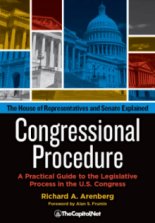The Commerce Clause – Article I Section 8, Clause 3 of the Constitution
The United States Constitution The Commerce Clause is one of Congress’ enumerated powers found in the Constitution of the United States, Article. I. Section. 8., clause 3: (Clause 3 – Commerce power) [The Congress shall have Power] To regulate Commerce with foreign Nations, and among the several States, and with the Indian Tribes; The … Read more


